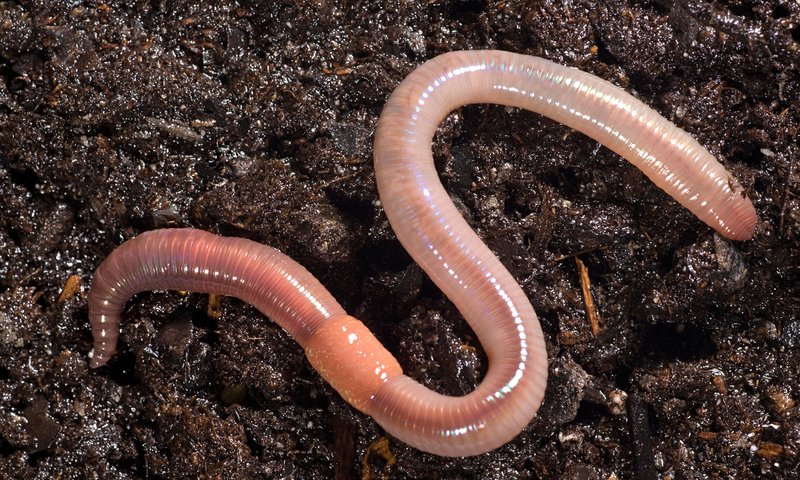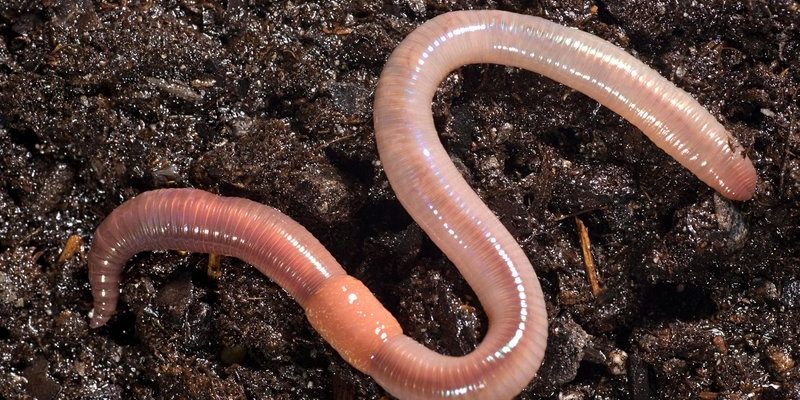
So, what exactly are earthworms? They’re not just your average garden tenant; they belong to a group of segmented worms known as annelids. There’s a whole variety of them, but the most common ones you’ll find in backyards are the red wigglers and nightcrawlers. These fascinating creatures have a unique way of life that benefits everything from your flower beds to large agricultural fields. Let’s dig deeper into what makes these little earth-dwellers so important.
What Exactly Are Earthworms?
Earthworms are slender, elongated creatures that can range in size from a few centimeters to over a meter long, depending on the species. They have a soft body segmented into rings, which help them move through the soil like a little caterpillar. You might find them wriggling in the damp earth after a rain, which is when they come up to the surface to breathe. That’s right—earthworms breathe through their skin!
These creatures are also hermaphrodites, meaning each worm has both male and female reproductive organs. This unique feature allows them to reproduce efficiently, increasing their population quickly in a suitable environment. Their life cycle goes from egg to adult in about two to three months, demonstrating their ability to adapt and thrive in various habitats.
Types of Earthworms
There are over 7,000 species of earthworms worldwide, but they can generally be categorized into three main types:
- Epigeic worms: These live in the leaf litter and organic matter on the soil surface, munching on decaying material. They have a short life cycle and are crucial for breaking down plant litter.
- Endogeic worms: Found within the soil, these worms create horizontal burrows. They feed on soil and organic matter, contributing significantly to soil structure and aeration.
- Anecic worms: These are the big guys who make deep vertical burrows. They pull organic matter from the surface down into the soil, enriching it as they go. Nightcrawlers are a popular example.
Remember, each type plays a specific role in maintaining soil health, so they’re all important players in our ecosystem.
How Do Earthworms Benefit Soil Health?
Earthworms are often called “nature’s plow,” and for a good reason. As they tunnel through the soil, they create channels that help aerate it. This means air, water, and nutrients can reach plant roots more easily. Without their burrowing activities, our soil would become compacted, making it much harder for plants to grow.
Moreover, earthworms consume dead leaves and other organic matter, breaking it down into smaller pieces. This process, called decomposition, is essential for creating humus, the nutrient-rich material that supports plant life. By processing waste and dead plant material, earthworms contribute to a fertile environment capable of supporting various crops and healthy gardens.
Additionally, earthworms help improve soil structure. Their castings—or worm poop—are rich in nutrients like nitrogen, phosphorus, and potassium. Plants love this stuff! By enriching the soil, earthworms play a significant role in promoting healthy plant growth.
Organic Matter Breakdown
When you think about it, earthworms are little composters. They turn waste into food for the soil. As they feast on organic material, microorganisms thrive in their gut, breaking down complex nutrients into forms that plants can absorb. This natural recycling process is crucial for maintaining soil fertility and reducing the need for chemical fertilizers.
Farmers and gardeners often look to these creatures as allies in sustainable agriculture. When earthworms are present in the soil, they indicate a healthy ecosystem. That’s why practices like no-till farming often lead to increased earthworm populations, as the soil remains undisturbed, allowing these critters to thrive.
Earthworms and Plant Growth
Ever notice how plants seem to grow better in garden beds filled with earthworms? It’s not just a coincidence. Studies show that earthworms directly affect plant growth by improving soil conditions. Their burrowing allows roots to penetrate deeper, reaching more nutrients and water.
Additionally, the nutrients from worm castings are more readily available for plants to use. This means healthier plants and potentially higher yields for farmers. So, whether you’re growing tomatoes or tulips, having earthworms in your soil can make a noticeable difference.
You might be wondering how you can attract more earthworms to your garden. Simple practices like adding organic matter (think compost or mulch) and avoiding chemical pesticides can create a hospitable environment for these beneficial creatures.
Earthworms and Soil Erosion Prevention
Soil erosion is a significant problem that affects farmland and gardens alike. With heavy rains or strong winds, soil can wash away, taking nutrients with it. Here’s where earthworms come into play again. Their burrowing helps bind soil particles together, reducing erosion and keeping your ground intact.
Furthermore, when heavy rains occur, earthworm burrows allow excess water to drain away instead of pooling on the surface. This capability means less runoff and healthier soil. You can think of earthworms as tiny engineers, building a sturdy infrastructure in your garden that minimizes erosion and promotes stability.
How to Encourage Earthworms in Your Garden
If you want to reap the benefits of earthworms in your garden, consider these tips to encourage their presence:
- Compost: Adding compost to your soil not only enriches it but also attracts earthworms, who thrive on decomposing organic matter.
- Mulch: A layer of mulch provides shelter and food, keeping the soil moist and creating a favorable habitat for earthworms.
- Avoid chemicals: Pesticides and herbicides can harm earthworm populations, so opt for organic solutions whenever possible.
- Moisture: Earthworms prefer moist environments, so keep your soil adequately watered—just not soggy!
By following these practices, you’re not just creating a cozy home for earthworms; you’re enhancing the overall health of your garden.
So, the next time you see an earthworm, take a moment to appreciate its contribution to our environment. They may be small and often overlooked, but their role in maintaining soil health is monumental. From breaking down organic matter to improving plant growth and preventing erosion, earthworms are truly nature’s unsung heroes.
If you’re a gardener or just someone who loves a healthy environment, understanding and fostering these little creatures can lead to a thriving landscape. Just remember that by taking care of the soil, you’re not only supporting the worms but also ensuring a vibrant ecosystem for future generations. By cultivating a healthy relationship with earthworms, you’re doing your part in nurturing the planet.

